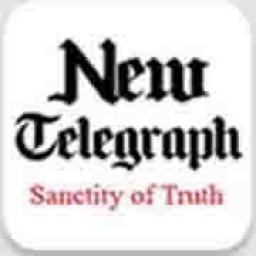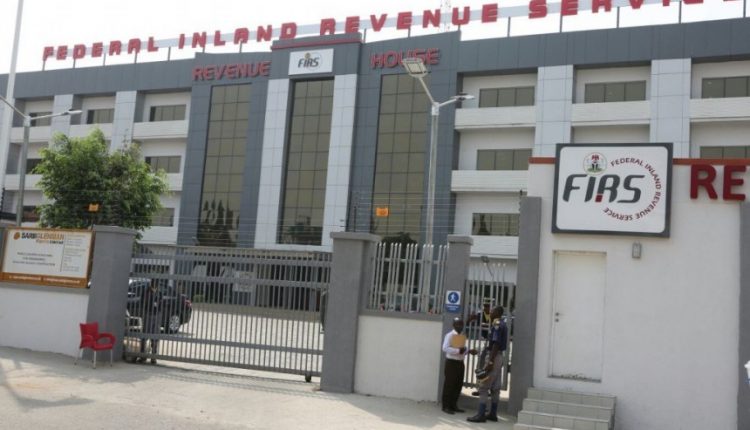In the statement it issued on June 13, 2024, announcing its approval of a $2.25 billion combined financing package for Nigeria, the World Bank attributed its decision to approve the loan to reforms initiated by the country’s fiscal and monetary authorities.
The Bretton Woods institution stated: “Confronted with a fragile economic situation, Nigeria recognized the urgency of changing course and embarked on critical reforms to address economic distortions and strengthen the fiscal outlook.
Initial critical steps to restore macroeconomic stability, boost revenues, and create the conditions to reignite growth and poverty reduction have been taken.
“These include unifying the multiple official exchange rates and fostering a market-determined official rate, as well as sharply adjusting gasoline prices to begin to phase out the costly, regressive, and opaque gasoline subsidy.
“The Central Bank of Nigeria (CBN) has refocused on its core mandate of price stability and is tightening monetary policy including by increasing interest rates, as is appropriate to reduce inflation.
A targeted cash transfer program is being rolled out to cushion the impact of high inflation on the poor and economically insecure households.”
Also commenting on the financing package, the World Bank’s Vice President for Western and Central Africa, Ousmane Diagana, said: “Nigeria’s concerted efforts to implement farreaching macro-fiscal reforms place it on a new path which can stabilise its economy and lift its people out of poverty.
“It is critical to sustain the reform momentum and continue to scale up and expand protection to the poor and economically at risk to cushion the effects of cost-of-living pressures on citizens.
“This financing package reinforces the World Bank’s strong partnership with Nigeria, and our support towards reinvigorating its economy and fasttracking poverty reduction, which can serve as a beacon for Africa.”
Staying the course
Given the foregoing, it is clear that even before it released the latest edition of its Nigeria Development Update (NDU) report, last Thursday, the World Bank had previously expressed its support for the reforms introduced by the current leadership of the Central Bank of Nigeria (CBN).
However, in the NDU report, titled, “Staying the course: Progress amid pressing challenges,” the international financial institution shed more light on why it strongly supports Nigeria’s reform measures.
For instance, in summarising the report, the World Bank stated: “Major reforms have been undertaken to restore macroeconomic stability since May 2023. The government started to move towards market-based pricing of gasoline to address the large fiscal cost of subsidised pricing.
The CBN initiated major FX policy reforms that resulted in a unified, better regulated, and market-reflective official exchange rate.
“Exchange rate flexibility, which eliminated the parallel premium and implicit FX subsidy, along with other fiscal reforms – such as rationalizing tax expenditures, introducing withholding VAT for key sectors, and improving the management of revenue remittances by government agencies – sharply increased Federation revenues from 5.5 per cent of GDP in H1 2023 to 8.7 per cent in H1 2024.”
It further said: “Monetary policy has also tightened to rein in inflation, with a combined 850 basis point Monetary Policy Rate (MPR) hike to 27.25 percent since February 2024, as well as other measures to improve monetary policy transmission and lift market interest rates.
“Crucially for Nigeria’s economic turnaround, the fiscal and monetary authorities have also moved decisively to restore fiscal discipline by ending deficit monetisation and refocusing the central bank on its price and financial sector stability mandate.”
The bank said that while it was still early to assess the reforms, their positive results were already beginning to show. Citing the accretion of Nigeria’s external reserves, it stated: “FX reserves – a buffer against external shocks – have risen from $32.9 billion at the end of 2023 to more than $38.5 billion by early October 2024.
The real exchange rate has dropped to historical lows, correcting the previous overvaluation of the official rate, and enhancing Nigeria’s international competitiveness, providing an historic opportunity for Nigerian products and services to compete with imports and tap export market opportunities.”
The World Bank called for the reform policies to be sustained, which it said, will boost investment and lead to employment generation.
As the Multilateral Development Bank put it, “sustaining the new direction of policies will continue to open space for the takeoff in investment and jobs which Nigeria urgently needs, and which in turn will further reinforce the improvement in the external and fiscal positions.
“If they can be sustained, and complemented with measures to address long-standing structural constraints and spur investment, growth, and jobs, Nigerians will start seeing the benefits of the new direction in their daily lives.”
Nigeria will need to stay the course of current economic reforms for at least the next 10 to 15 years to transform its economy
Recommendations
Specifically, it said: “The monetary policy stance needs to remain tight until a sustained disinflation path is achieved, along with continued improvements in policy transmission.
“Maintaining a tight enough monetary policy stance is critical to keep market interest rates positive in real terms, temper FX demand, and lower inflation expectations.
“Furthermore, it is essential that the CBN’s commitment to not reverting to inflationary ways and means advances as in the recent past should be upheld.
“The CBN could clearly communicate that the recent amendment of the CBN Act to increase the limit from five to 10 per cent of previous year’s revenue does not imply a renewed recourse to ways and means.
Rather, the legal requirement to retire outstanding balances at the end of each year and use this facility only for limited, temporary liquidity mismatches remains.
“Ways and means balances (principal and interest) should be systematically reported on with less of a time lag. Monetary policy implementation should also rely progressively more on standard tools—i.e.
MPR anchoring via open market operations and standing facilities—rather than prudential instruments, to improve policy transmission and ease financial repression.
“Strong coordination between monetary and fiscal policy, with the latter reducing borrowing pressures sufficiently, is necessary to rebuild confidence and reduce inflation.”
Furthermore, it said: “Exchange rate policy should continue to be geared towards maintaining a unified, market-reflective exchange rate, whilst deepening the FX market.
“The CBN should continue efforts towards deepening the official FX market, including by facilitating formal remittances inflows, allowing international oil companies to fully concentrate their FX sales in the official market, restoring intermediated market access to bureaux de change, and refraining from ad-hoc FX auctions.
“Allowing market participants to trade FX with more flexibility across time would also contribute to deepening the FX market.
In addition, continuously reaffirming the commitment to exchange rate flexibility, adopting a comprehensive, systematic, and transparent framework for CBN FX interventions, and building reserves, would contribute to anchoring exchange rate expectations to fundamentals, rather than to perceived targeted rate levels.
“Maintaining the single, marketreflective exchange rate is crucial to increase fiscal revenues (from oil and taxes on other export-related profits, customs, and VAT on imports), attract investment, build external reserves, and, in turn, set the conditions for investment and inclusive growth.”
Interestingly, two days before the NDU report was released, the Chief Economist and also Senior Vice President for Development Economics, at the World Bank, Indermit Gill, while speaking at the Nigeria Economic Summit (NES) in Abuja, had advised that the country should maintain its economic reforms for the next 10 to 15 years to establish itself as a leading economic power, not only in sub-Saharan Africa but also on the global stage.
Gill stated: “Nigeria will need to stay the course of current economic reforms for at least the next 10 to 15 years to transform its economy.” Reacting to the murmuring of the audience that his advice triggered, he said: “I don’t know if you are agreeing or disagreeing with me.
If these reforms are sustained, Nigeria will transform its economy and become an engine of growth in sub-Saharan Africa.” “It is very difficult to implement such reforms, but the rewards will be massive if they are maintained,” he added.
Benefits
CBN Governor, Olayemi Cardoso, who was also one of the key speakers at the Summit, tried to clarify Gill’s statement when he took part in a panel discussion on the second day of the event. He said: “The issue of the World Bank chief economist. I wasn’t here.
But I read the speech. To be honest, my interpretation wasn’t how others perceived it. I think he was basically misunderstood. “My understanding of what he said is that the policies of the central bank are putting Nigeria on the right track.”
He further said: “I think that we should accept that there have been a lot of mistakes made over a long period of time. We should also accept that we risk the opportunity to diversify our economy.
“We should accept that we are a monolithic economy. We should also accept that any movement or shocks in a monolithic economy will cause much more pain than if the economy were diversified.
I think that is justified.” Cardoso also echoed the World Bank’s view that a weak naira can boost exports and make Nigeria’s products competitive. “In terms of persuasion, what we need now is to ensure that investments are here.
Take, for example, now it may seem like a threat in the sense that the exchange rate has come down so low. But that also is an opportunity because what that means is that it can help to boost your exports.
“This will make Nigeria to become a lot more competitive in the export trade. I just want to encourage people to say that the opportunities are here. Things are recalibrating in a particular direction.
It’s not perfect, but definitely there are opportunities for people to single out and invest. “By the time you are exporting to other countries with the cost of import here and the relatively low naira, you will have a situation where you have to do things like that.
And I see it happening. Others are doing it and the interest is growing in leaps and bounds,” the CBN governor said.
Conclusion
However, as analysts have pointed out, the key challenge of the reforms could be seen from the negative reaction of the audience to Gill’s statement that the economic reforms should be maintained for at least the next 10 to 15 years to transform the country’s economy.
Many Nigerians believe that the hardship, occasioned by the reforms, needs to be urgently tackled so that they would be alive to witness a transformed economy.
Please follow and like us:

 2 hours ago
4
2 hours ago
4









 English (US) ·
English (US) ·